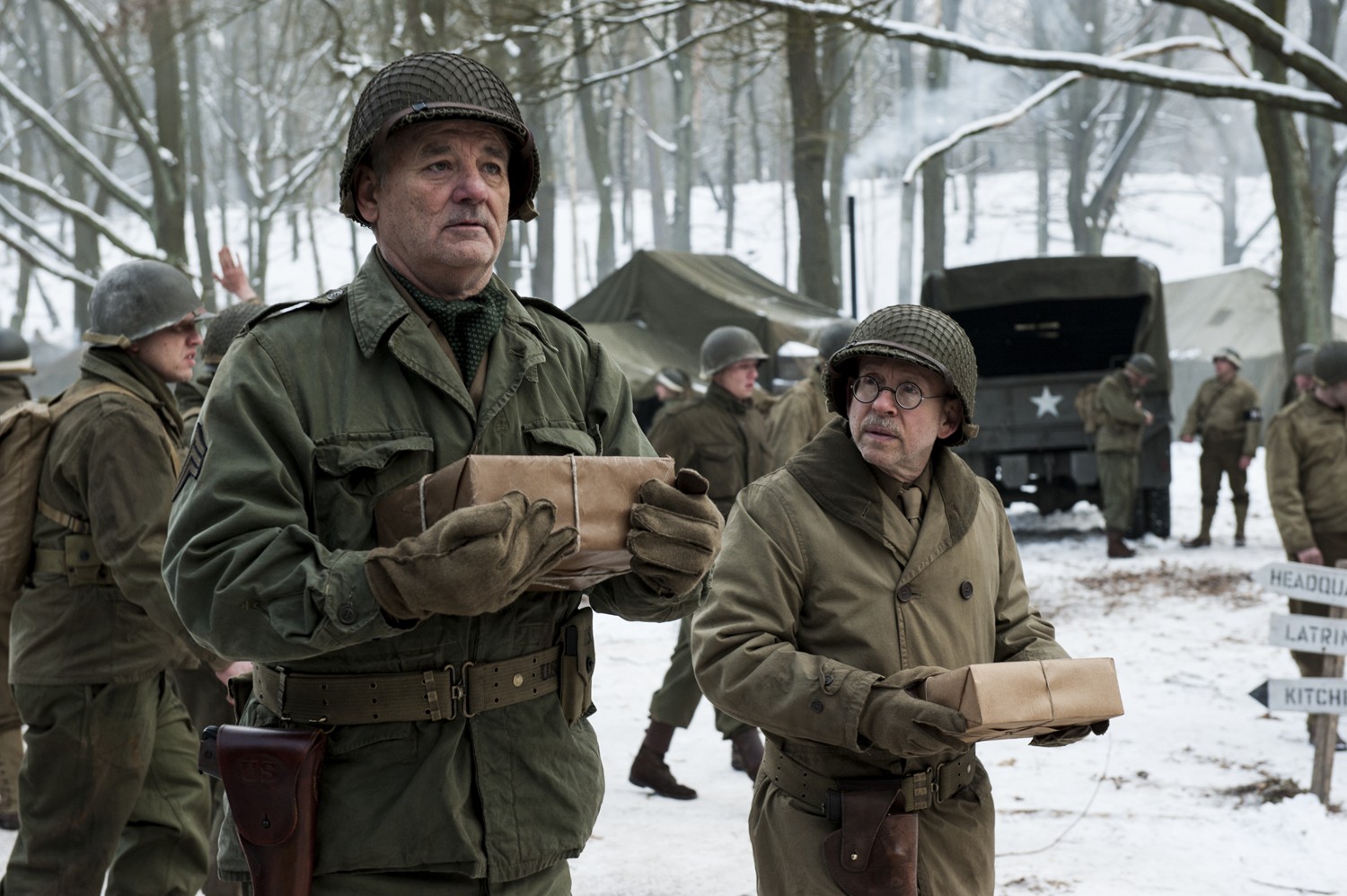Turns out Hitler was a REALLY bad guy. In addition to the genocide of Jews, the man also wanted to wipe the artistic influences in Europe due to his shunning by the art community. The Monuments Men chronicles the team assembled to subvert Hitler’s attempt to rid the world of priceless cultural artifacts. This movie could have been a nice little war comedy with better direction, but it takes itself too seriously and meanders too often. Writer/Director/Star George Clooney maybe should have distanced himself from the story a little bit.
The premise is solid enough: Hitler wants to create a personal museum of the greatest pieces of art in the world, so he steals some whenever he conquers a city. To stop him, Frank Stokes (Clooney) puts together a team of art experts: spy/intelligence man James Granger (Matt Damon), architect Richard Campbell (Bill Murray), aficionados Preston Savitz(Bob Balaban) and Walter Garfield (John Goodman), disgraced general Donald Jeffries (Hugh Bonneville), Frenchman Jean Claude Clermont (Jean Dujardin), and translator Sam Epstein (Dimitri Leonidas). While most of these men go from city to city looking for stolen art, Granger goes to Paris to seek out Claire Simone (Cate Blanchett), who worked closely with the art the Nazis were hiding.
The Monuments Men undersells the novice nature of these “soldiers.” It is made clear from the start that these men have the minimal amount of training, thinking they would be around long after the fighting had stopped. However, Monuments Men wisely points out how tactically overmatched these men are in the strongest scenes of the movie. Monuments could go in two directions with this: play up the danger of the situation for a normal citizen, or play it as a joke. Instead, these situations are relegated to the background to try to convince us why saving art is important scene after scene after scene. This creates over-the-top rhetoric that infuses the screenplay to the story’s detriment.
This movie is also a zag zigger tonally. It is funny at the wrong times (like throughout a tense sniper situation), and carries too much dramatic weight when clearly the war has much larger stakes. As such, many scenes feel a tad rushed and incomplete. This makes the big events of the third act semi-glossed over and lacking any real tension. Sometimes the movie works (like in the scene with a land mine), but those scenes are few and far between.
Also not helping is the lack of character development for the actors. They service the story as best they can, but any whiff of character development is forgotten to move the men to a different city. Heck, there aren’t even any team formation rituals or rites of passage really covered. The best arc belongs to Hugh Bonneville, since the arc actually completes and provides the driving force for the final 30 minutes of the movie. Bill Murray gets a nice (but unnecessary) scene involving a phonograph. A tighter focus on fewer characters might have done Monuments Men some good, such as excising Damon and Blanchett from the movie altogether.
George Clooney uses the last few scenes to stress why these men were so important to future generations, but at that point it is too little too late. The little mistakes and shortcuts by The Monuments Men screenplay to the story and its characters make the audience feel indifferent to what they’re seeing. It’s a shame, because there is a good story somewhere in here, and I hope it gets retold by a director with better vision.

